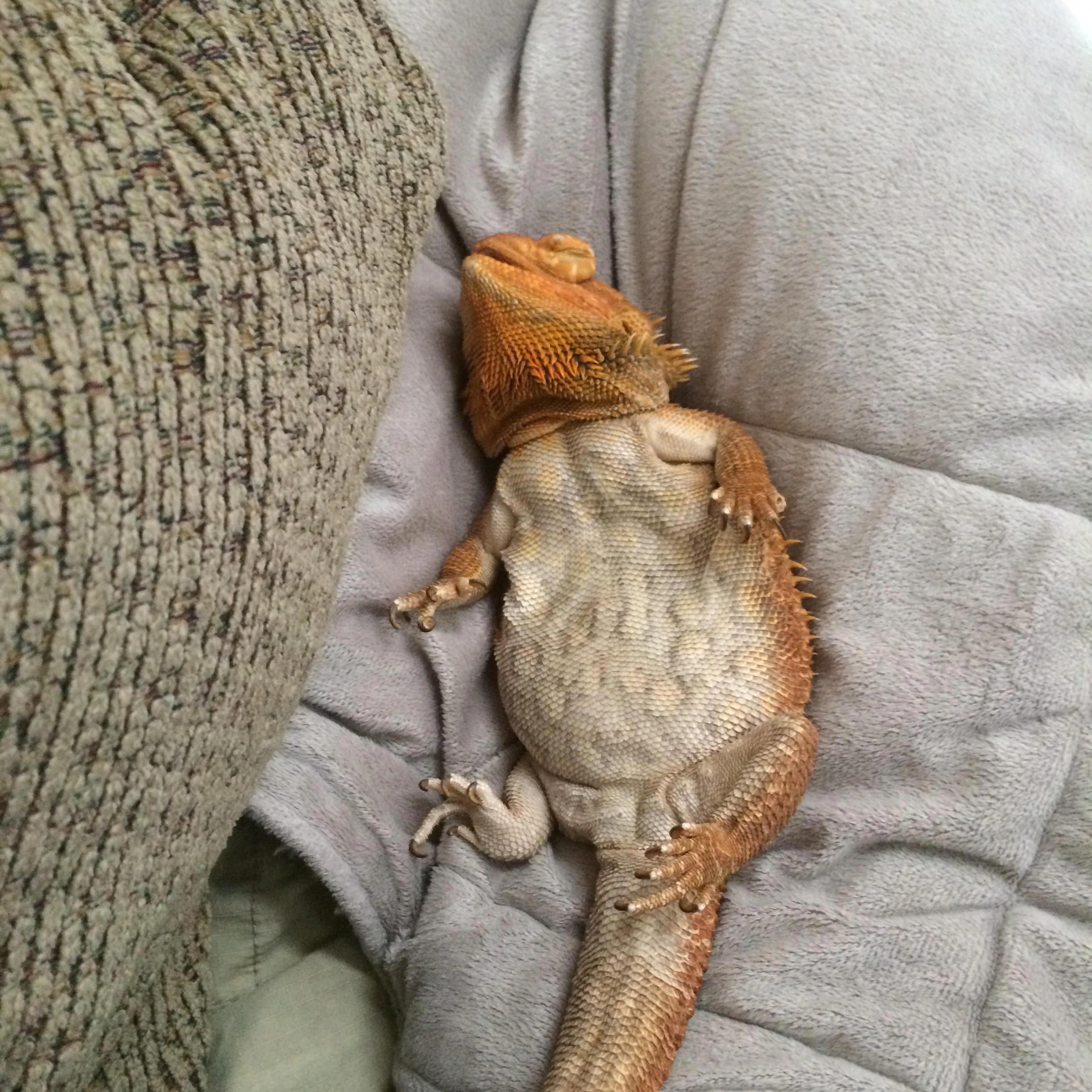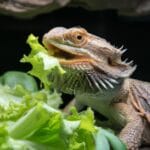You’ve adopted a bearded dragon! Congratulations! But how long will this fascinating lizard be your companion? While you’ll often hear that they live 8-15 years, the reality is far more nuanced. This isn’t just about numbers; it’s about understanding the factors that contribute to a long, healthy life for your scaly friend. This guide, informed by veterinary expertise, will equip you to provide the best possible care.
Decoding Your Bearded Dragon’s Lifespan
So, you’re considering a bearded dragon? Fantastic! How long can you expect this amazing reptile to be part of your life? The typical lifespan is often cited as 8 to 15 years, but this is a broad range. Some lucky owners celebrate their dragon’s 18th birthday, a testament to exceptional care! Conversely, inadequate care can significantly shorten their lives. Let’s explore what shapes their lifespan.
Diet: Fueling a Long and Healthy Life
A balanced diet is the cornerstone of a long life for your bearded dragon. Imagine trying to run a marathon on potato chips—not a sustainable strategy! Your dragon needs a varied diet to thrive, consisting of live insects (crickets, dubia roaches are excellent choices; limit mealworms, as they are less nutritious) and a diverse array of leafy greens like collard greens and kale. Occasional small amounts of fruits and vegetables can be offered as treats.
Crucially, calcium and vitamin D3 supplementation is not optional; it’s absolutely vital. Without adequate levels, your dragon is at high risk of developing metabolic bone disease (MBD), a debilitating condition that severely weakens bones and drastically reduces lifespan.
Habitat: Creating a Thriving Environment
The environment you provide is just as crucial as the food you offer. Adult bearded dragons need a spacious enclosure—at least a 75-gallon tank, ideally larger—to thrive. Think of it as their apartment! They need ample space to explore and express natural behaviors.
Temperature is critical. Bearded dragons are ectothermic (cold-blooded), meaning they rely on external sources for heat regulation. They require a significant thermal gradient: a warm basking spot (around 100-105°F or 38-41°C) for digestion and vitamin D synthesis, and a cooler area (75-80°F or 24-27°C) where they can thermoregulate.
UVB and UVA lighting are non-negotiable. UVB is essential for vitamin D3 synthesis, crucial for calcium absorption and overall health. UVA lighting contributes to their overall well-being. Choose a safe substrate, such as paper towels or tile; avoid sand, which can cause impaction if ingested. Maintaining appropriate humidity levels is also vital to prevent respiratory problems.
Genetics and Gender: The Role of Nature
Like humans, bearded dragons inherit genetic predispositions that influence their health and longevity. Some dragons are simply more resilient than others. Selecting your dragon from a responsible breeder who screens for health problems significantly reduces inherent risks. While some studies suggest male bearded dragons may live slightly longer on average, this isn’t consistently observed, and further research is needed to draw firm conclusions. Every dragon is an individual, making predicting their lifespan a complex undertaking.
Veterinary Care: Proactive and Preventative
Regular check-ups with a veterinarian experienced in reptile care are essential. Early diagnosis and treatment of conditions like parasites or respiratory infections can make an enormous difference in their lifespan. Think of it as regular maintenance – a vital investment in their well-being and longevity.
Wild vs. Captivity: A Stark Contrast
The lifespan of bearded dragons varies dramatically between wild and captive environments:
| Feature | Wild | Captivity |
|---|---|---|
| Average Lifespan | Around 8 years | 8-15 years |
| Predation | Constant threat | None (hopefully!) |
| Food Availability | Unpredictable | Consistent, controlled |
| Disease | Higher risk | Lower risk (with good care) |
Maximizing Your Bearded Dragon’s Lifespan
To give your bearded dragon the best chance at a long and fulfilling life, concentrate on these critical aspects:
- Optimal Nutrition: Provide a diverse and balanced diet, ensuring adequate calcium and vitamin D3.
- Ideal Habitat: Create a spacious, stimulating enclosure with the correct temperature gradient, lighting, and a safe substrate.
- Preventative Healthcare: Schedule regular check-ups with a reptile veterinarian.
- Ethical Breeding (If Applicable): If breeding, select healthy parents and prioritize ethical practices.
By implementing these strategies, you significantly increase your bearded dragon’s chances of reaching the upper end of the lifespan range—or even exceeding it! The 8-15 year lifespan is an average; your dedication can make all the difference!
How Long Does a Bearded Dragon Live as a Pet?
Having explored the general lifespan of bearded dragons, let’s delve deeper into the specific factors that determine how many years you’ll share with your pet. While 8-15 years is the average lifespan, this is a range, with some reaching 18 years—a testament to optimal care. Poor care, however, can sadly curtail their life significantly.
Understanding the Variations in Lifespan
That wide range (8-15 years) isn’t arbitrary. It reflects the significant impact of various factors: diet, housing, and overall health management.
Diet: The Fuel for a Long Life
Consider your bearded dragon’s food as its fuel. A varied and balanced diet is crucial. They need a mix of live insects (gut-loaded crickets and roaches are excellent; limit mealworms), and a variety of leafy greens (collard greens, kale). Don’t forget the essential calcium and vitamin D3 supplements to prevent MBD, a severe condition that severely reduces their lifespan.
Habitat: Their World
Their enclosure is not merely a cage; it’s their entire world. It must be spacious—at least a 75-gallon tank for an adult—providing plenty of room to explore and roam. Maintain a proper temperature gradient (warm basking spot of 100-105°F and a cooler area of 75-80°F) and ensure sufficient UVB lighting for calcium absorption. Choose a safe substrate (paper towels or tile are suitable options; avoid sand). Appropriate humidity levels are also crucial for respiratory health.
Health: The Importance of Preventative Care
Regular veterinary check-ups are crucial. They are preventative maintenance. Early detection and treatment of potential illnesses can make a substantial difference in extending your bearded dragon’s life and preventing unnecessary suffering.
Other Factors: The Unknowns
While diet, habitat, and veterinary care are primary, other influences play a smaller but still significant role. Genetics play a part—some dragons are simply more genetically predisposed to certain conditions. There’s also some ongoing debate on whether there are significant lifespan differences between males and females—more research is needed.
Maximizing Your Dragon’s Years
To summarize, the lifespan of your pet bearded dragon is a combination of its genetics and the care you provide. With excellent care, the 8-15 year average can easily be exceeded. Remember, providing a good quality of life significantly improves their chances of living a long and healthy life.
How Long Do Bearded Dragons Live in a Tank?
Let’s focus specifically on the lifespan of bearded dragons living in captivity, within the confines of a tank or enclosure.
Captive Life Compared to the Wild
In the wild, a bearded dragon’s life is challenging. Predators, fluctuating weather conditions, and inconsistent food availability typically lead to lifespans of 5-8 years. However, in the safety and comfort of a well-maintained tank, this dramatically changes! With proper care, a pet bearded dragon can comfortably live 8-12 years, and some even reach an impressive 15 or more, with rare instances surpassing 18 years! This incredible difference underscores the power of humane care.
The Recipe for a Long and Healthy Bearded Dragon Life
Think of your bearded dragon’s care as a recipe. To achieve a rewarding outcome, use the right ingredients and proportions. Let’s look at the key components:
The Ideal Home
Your bearded dragon’s enclosure should be spacious—a 120-gallon tank or larger is ideal for an adult. Temperature is paramount. They require a basking spot (100-105°F) and a cooler area (75-80°F) permitting temperature regulation. UVB lighting is essential for calcium absorption; without it, they risk metabolic bone disease (MBD).
Nutritional Fuel
A balanced diet is crucial. Feed a varied mix of insects (crickets, roaches – limit mealworms) and leafy greens (collard greens, kale). Include calcium and Vitamin D3 supplements, critical for young, growing dragons, and essential throughout their lives.
Gentle Handling and Stress Reduction
Minimize stress by handling your dragon gently and infrequently. Recognize signs of stress and adjust handling accordingly.
Routine Veterinary Care
Regular trips to a reptile vet are vital, preventative medicine. Early detection of potential problems is crucial for maintaining health and maximizing lifespan.
Genetics and Responsible Breeding
While genetics influence lifespan and health, selecting a dragon from a reputable breeder who screens for health issues is a positive step.
Gender and Lifespan: A Note
While some observations suggest male bearded dragons might live slightly longer than females, there isn’t conclusive evidence to definitively support this. More research is needed.
The Big Picture: How Long Will Your Beardie Live?
Your bearded dragon’s lifespan is a combination of genetics and the care you provide. Providing ideal living conditions can significantly extend their lifespan beyond the typical 8 years. While 8 to 12 years is a common range, exceptional care can allow your bearded dragon to live many more years.
Is 8 Years Old for a Bearded Dragon Considered Old?
Your bearded dragon, let’s call him/her Sparky, is eight years old. Is that old? Not necessarily! Think of it as middle-aged for a human—plenty of life left!
Bearded Dragon Life Expectancy: A Comparison
In the wild, bearded dragons typically don’t surpass 5 to 8 years. However, a pet bearded dragon can easily live 8-12 years, with some reaching 15 or even 18 years under ideal conditions. Eight years old is still relatively young for a well-cared-for pet bearded dragon.
Middle Age for Your Bearded Dragon: What to Expect
At eight years old, your bearded dragon might start showing subtle signs of aging: they might be slightly less active, their appetite may become more finicky, and they may need a bit more pampering. This doesn’t necessarily signal a serious problem, but it may indicate a need for some adjustments.
Providing Optimal Care for an Older Bearded Dragon
At this stage, adapting their care can significantly impact their quality of life and longevity.
Dietary Adjustments: Continue a varied diet, but consider a calcium supplement designed for senior reptiles and possibly adjust the calcium-to-phosphorus ratio under veterinary guidance.
Environmental Modifications: Maintain the ideal temperature gradient, perhaps adding ramps or rocks to ease mobility. Continue monitoring humidity levels.
Increased Veterinary Visits: Schedule more frequent check-ups to detect age-related problems early.
Behavioral Monitoring: Pay close attention to changes in appetite, activity, or personality. Any notable changes warrant a veterinary visit.
Gender and Lifespan: A Quick Note
Males tend to live a bit longer than females. However, providing excellent care is crucial regardless of gender.
Growth Guide (Approximate)
Remember, every bearded dragon is unique, so these are average estimates:
| Age Range | Length (inches) | Weight (grams) | Notes |
|---|---|---|---|
| Hatchling (0-3m) | 2-4 | 5-10 | Tiny and adorable! |
| Juvenile (4-12m) | 5-10 | 20-50 | Growing quickly! |
| Subadult (12-18m) | 10-16 | 50-100 | Almost fully grown! |
| Adult (18m-5y) | 16-24 | 100-200+ | Mature and settled into adulthood. |
| Senior (5+ y) | Varied | Varied | Individual variation is substantial here |
Conclusion: Is Eight Years Old Too Old?
No, eight years is a perfectly healthy age for a bearded dragon! While entering their senior years, they still have many happy years ahead. Providing age-appropriate care is key to ensuring a comfortable and fulfilling life. Don’t forget those regular vet visits!
Discover the astonishing underwater endurance of these prehistoric predators by learning just how long can alligators hold their breath. If those scaly reptiles have you beat, perhaps you’ll find solace in solving a different problem entirely: Are those pesky how do i get rid of moles in my yard?
- Red Cloud, NE: Discover Willa Cather’s Legacy - April 11, 2025
- Remember Old Social Media Sites? Their Rise and Fall - April 11, 2025
- How many days till Feb 3?Accurate Countdowns & Tools - April 11, 2025

















1 thought on “How Long Do Bearded Dragons Live in Captivity? A Vet’s Guide to Lifespan & Care”
Comments are closed.